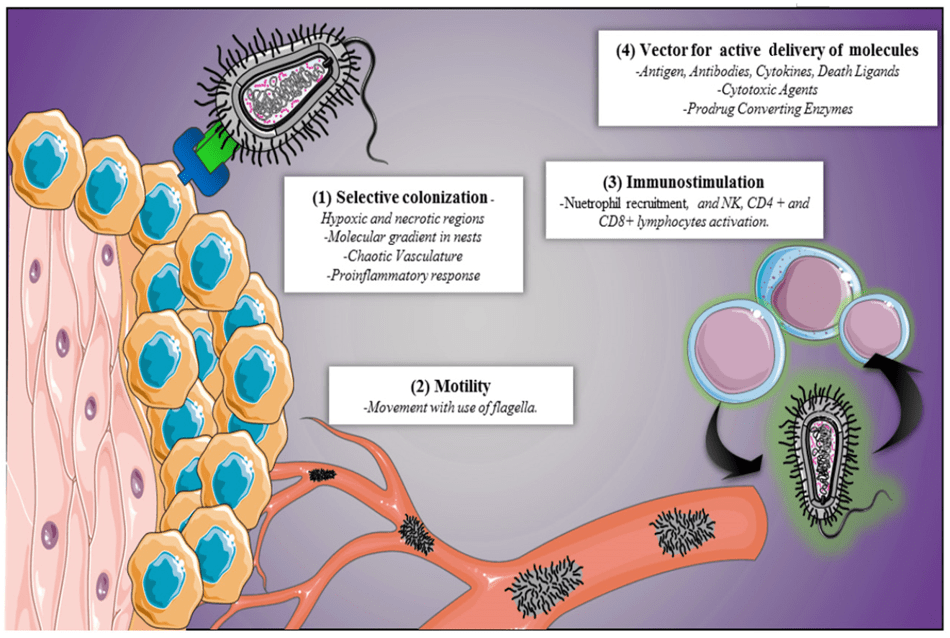Immune system can recognize and eliminate abnormal cells including tumour cells through a property called Immunosurveillance. This property is often suppressed by tumour cells to enhance their survival rate. Considering this property and adverse side effects of current anticancer therapies, scientists came up with a novel treatment called immunotherapy. Since only few immunotherapies have been known to be clinically effective, use of microbes to potentiate immune response has been considered as a promising strategy for treating cancer. It has been assumed that use of microbes could lead to cancer regression especially in those patients where conventional cancer treatments have failed. Even though it’s a promising treatment, its safety aspects should be considered. This is important to ensure that patients do not get infected with the microbes used for treatment. One way of ensuring this is by depriving pathogenicity of the microbes (attenuation) through genetic engineering. This will make them the best candidate to target cancer cells and transport antineoplastic agents by acting as a vector (Figure 1).

Figure 1: Mechanism of bacteria targeting cancer cells and activating the immune system.
Many of the microbes for anticancer therapy are under clinical trials and experimental researches. Interestingly, one of the microbes used under experimental researches is Plasmodium falciparum (Pf). It is the most malignant causative agent of malaria. Despite its negative features, it can be used to treat cancer. Pf’s protein VAR2CSA binds to mucopolysaccharide-chondroitin sulphate A of placenta cells. Studies have shown the presence of chondroitin sulphate in some tumour cells. Thus, a recombinant version of protein VAR2CSA called rVAR2 was developed. This rVAR2 was then conjugated to diphtheria toxoid and was tested. Both in vitro and in vivo studies on the mouse models proved that this strategy was very effective, especially in treating melanoma with high expression of chondroitin sulphate.
In conclusion, although microbes have proved to eliminate cancer, experimental studies have revealed that many animal models have died due to microbial infection after the cure. Hence, more research on its use is required to balance between its attenuation and immune stimulatory effects.
References
Lukasiewicz, K. & Fol, M., 2018. Microorganisms in the Treatment of Cancer: Advantages and Limitations. Journal of Immunology Research, 2018(1).
Torres, W. et al., 2018. Bacteria in cancer therapy: beyond immunostimulation. Journal of Cancer Metastasis and Treatment, 4(4).

Wow that’s interesting! Loved the way you have written it!
LikeLiked by 1 person
Thank you!
LikeLike
Awesome! Never knew about this!
LikeLike
Glad you got to know something new!
LikeLiked by 1 person